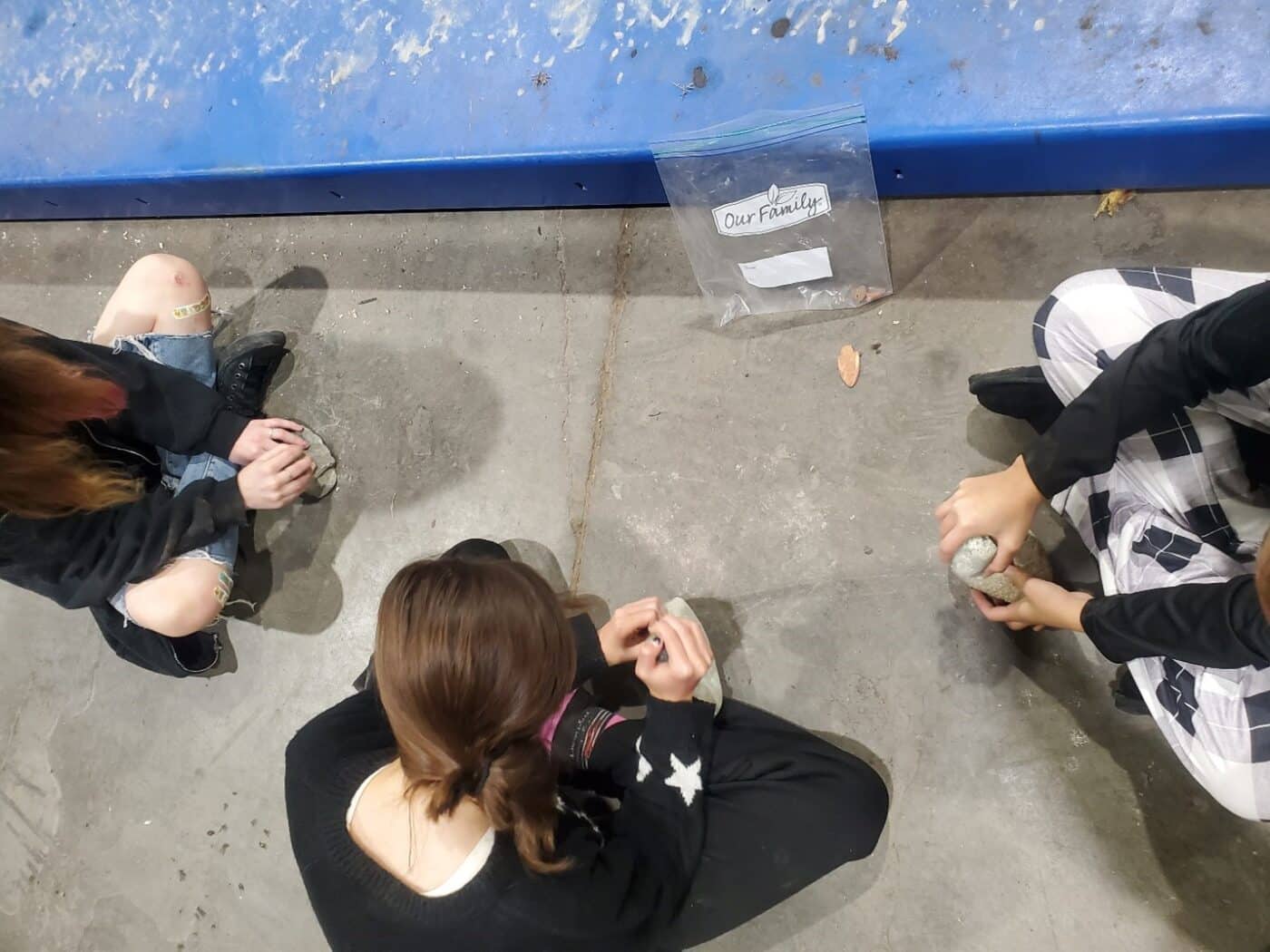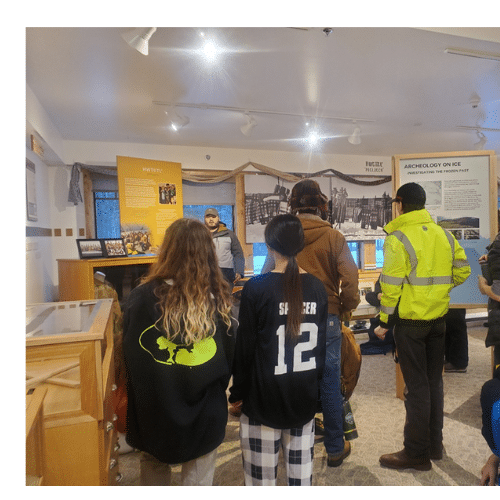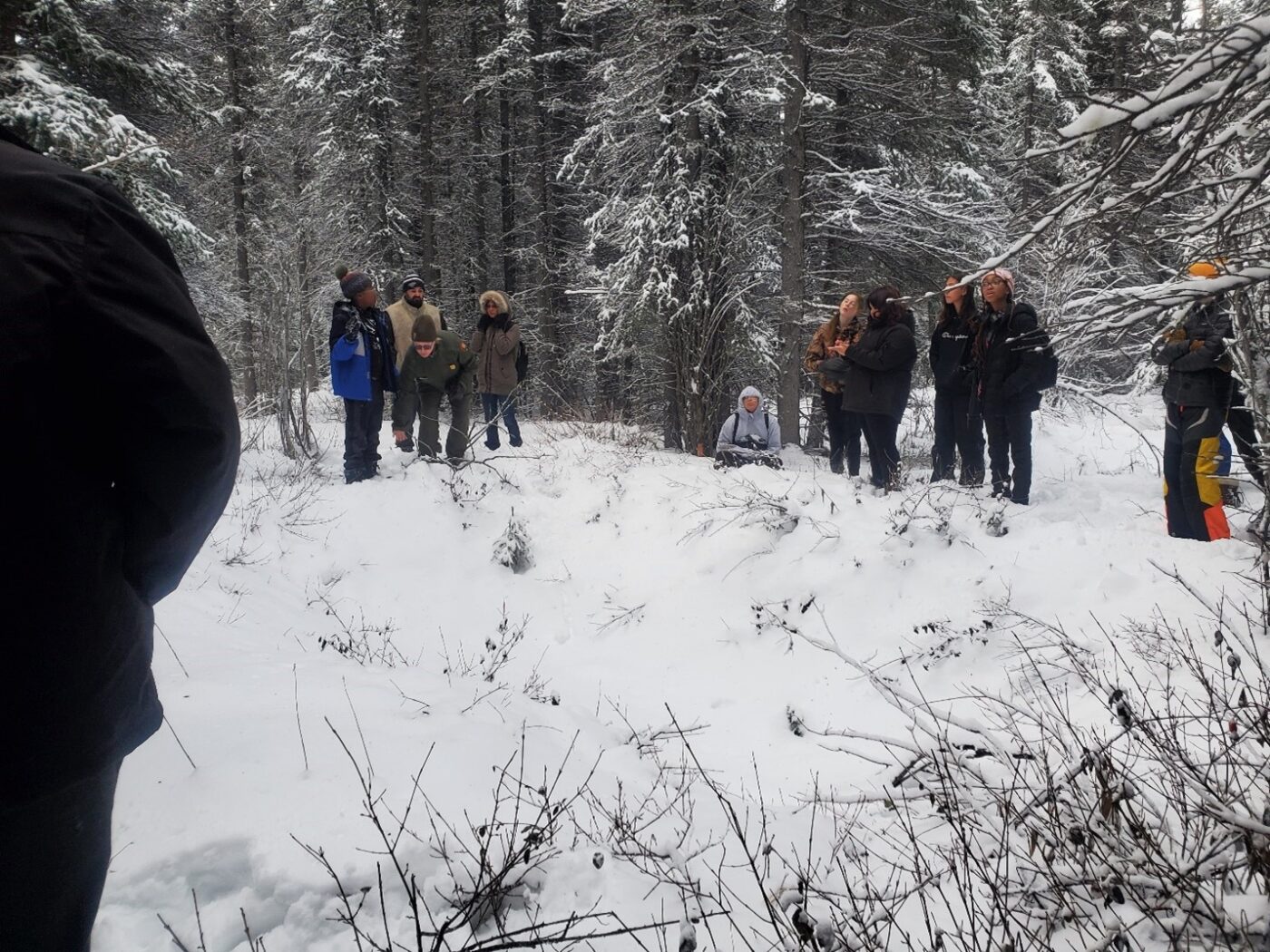Emily Fletcher, a PhD student from Purdue University, hosted an exploratory course for the middle schoolers of Copper River School District (CRSD) from November 6th to 17th. The course, titled “Archaeology and Ahtna History,” explored themes of archaeology, Ahtna history and culture, and computer programming. Emily gave an overview of the field of archaeology and how to pursue a career as an archaeologist. She introduced students to an important local historical site, the Gulkana Site, where Ahtna ancestors lived and made copper objects 1,000 years ago. Students learned copperworking techniques and experimented with creating their own copper objects.
The main project of the course required students to create a video game centered on Ahtna history and culture, drawing from what they learned in the course. M. Starr Knighten, Shareholder Advocate at Ahtna Incorporated, provided information on Ahtna culture during the first week of the course. In the second week, students took a field trip to the Ahtna Cultural Center at Wrangell-St. Elias National Park & Preserve (WRST NP &P). M. Starr Knighten and Edward GreyBear, Customary and Traditional Coordinator at Ahtna, Incorporated shared more information about Ahtna traditions and history. The students also observed WRST NP &P and were given information about the park and its landscape. At the end of the course, students learned basic computer programming skills and worked together to design their games. The students were able to select which topics to address in their games—common themes were subsistence, tool construction, and archaeology.
This course was a component of Emily’s dissertation project, which is made possible through collaboration with Ahtna, Incorporated and Copper River School District and funding from the National Science Foundation. In her dissertation, Emily aims to use the newest computer methods to make information about the Gulkana Site more useful to archaeologists and Ahtna shareholders alike. Instead of excavating as archaeologists traditionally do, Emily’s research focuses on data from excavations that already occurred in the 1970s and 1990s. Emily has worked with Ahtna leadership to ensure her research also provides value to Ahtna people and other local communities.
Over the next two years, Emily will continue to host educational opportunities for Ahtna and local youth, including working with Ahtna interns to study the Gulkana Site. As her project progresses, Emily is especially interested in community input on what topics should be the focus of study at the Gulkana Site. She welcomes feedback or other communication from anyone interested in being involved with the project and you can reach her at fletch47@purdue.edu.






